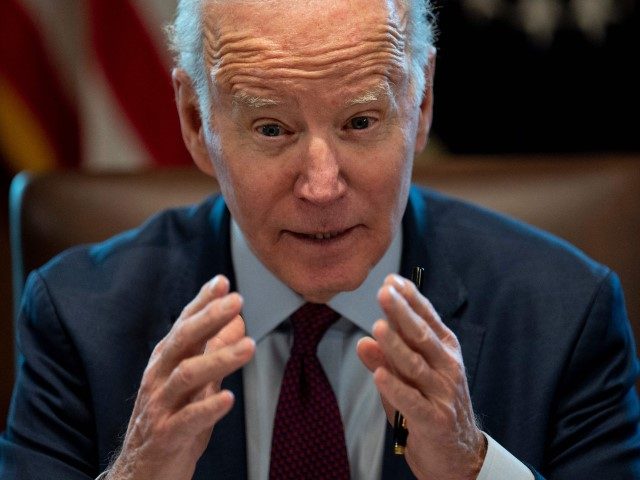A strong labor market and the retreat of covid-19 provided some buoyancy to consumer confidence in March, although inflation, gas prices, and the outbreak of war in Ukraine have dimmed expectations for the near-term future.
The Conference Board said its index of consumer confidence came in at 107.2 in March, in line with expectations. This was below the 110.5 index level reported last month for February and below January’s 111.1.
This would have made March the third monthly decline except for a downward revision for February to 105.7. That deeply depressing reading came as the omicron variant was driving record-high infection rates and inflation was hitting the worst level in forty years.
As a result of the revision to February, March’s reading now signals slight improvement.
Expected inflation over the next 12 months rose to 7.9 percent, an all-time high and a sign that consumers do not think inflation will be brought under control this year. The Bureau of Labor Statistics reported on March 10 that the Consumer Price Index was up 7.9 percent in February compared with a year earlier.
The improvement to the headline index was driven entirely by a rise in the present situation index, based on consumers’ assessment of current business and labor market conditions, to 153.0 from 143.0 last month.
The expectations index–based on consumers’ short-term outlook for income, business, and labor market conditions—declined to 76.6 from 80.8.
So people got slightly more comfortable about the present situation and less optimistic about the future.
“Consumer confidence was up slightly in March after declines in February and January,” said Lynn Franco, Senior Director of Economic Indicators at The Conference Board. “The Present Situation Index rose substantially, suggesting economic growth continued into late Q1. Expectations, on the other hand, weakened further with consumers citing rising prices, especially at the gas pump, and the war in Ukraine as factors. Meanwhile, purchasing intentions for big-ticket items like automobiles have softened somewhat over the past few months as expectations for interest rates have risen.”
The share of consumers who say jobs are plentiful rose 3.7 points to 57.2 percent, a new historical high. That could add to worries that an ultra tight labor market could generate even higher inflation. At a press conference following the March meeting of the Federal Open Market Committee, Fed chair Jerome Powell said the labor market’s tightness is already “unhealthy.”
Consumers were mixed about the short-term labor market outlook. Seventeen percent of consumers expect more jobs to be available in the months ahead, down from 19.4 percent in February. The share expecting fewer jobs also fell, from 19.6 percent to 17.7 percent.
Views of business conditions remain tilted toward the negative, although the gap between good and bad assessments narrowed. The share of consumers saying business conditions are bad dipped to 22.1 percent from 25.1 percent, while the share saying conditions are good rose to 19.6 percent from 17.6 percent.
And consumers flipped into pessimism about the short-term prospects for business conditions. A month ago, 21.3 percent expected improvement and 19.9 percent thought things would get worse. Now just 18.7 percent expect improved conditions and 23.8 percent expect conditions to worsen.
Consumers were also mixed about their short-term financial prospects. Those expecting increased income moved up slightly from 14.7 percent to 14.9 percent. Those expecting a decline in their income also rose to 13.7 percent from 13 percent.
“Nevertheless, consumer confidence continues to be supported by strong employment growth and thus has been holding up remarkably well despite geopolitical uncertainties and expectations for inflation over the next 12 months reaching 7.9 percent—an all-time high. However, these headwinds are expected to persist in the short term and may potentially dampen confidence as well as cool spending further in the months ahead,” Franco said.

COMMENTS
Please let us know if you're having issues with commenting.